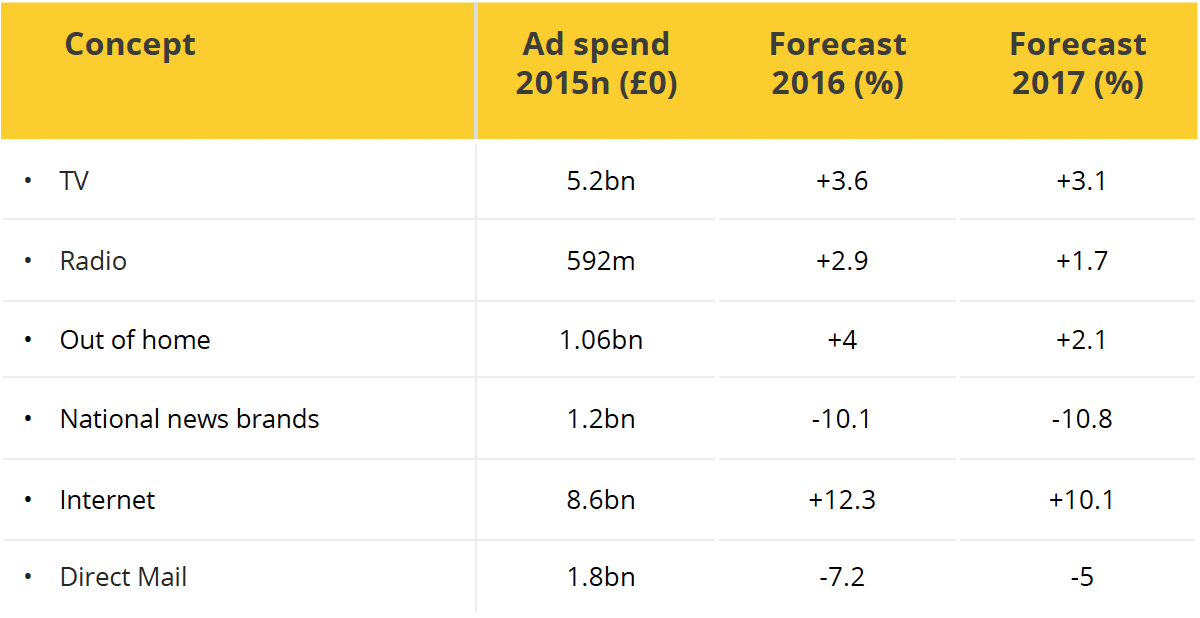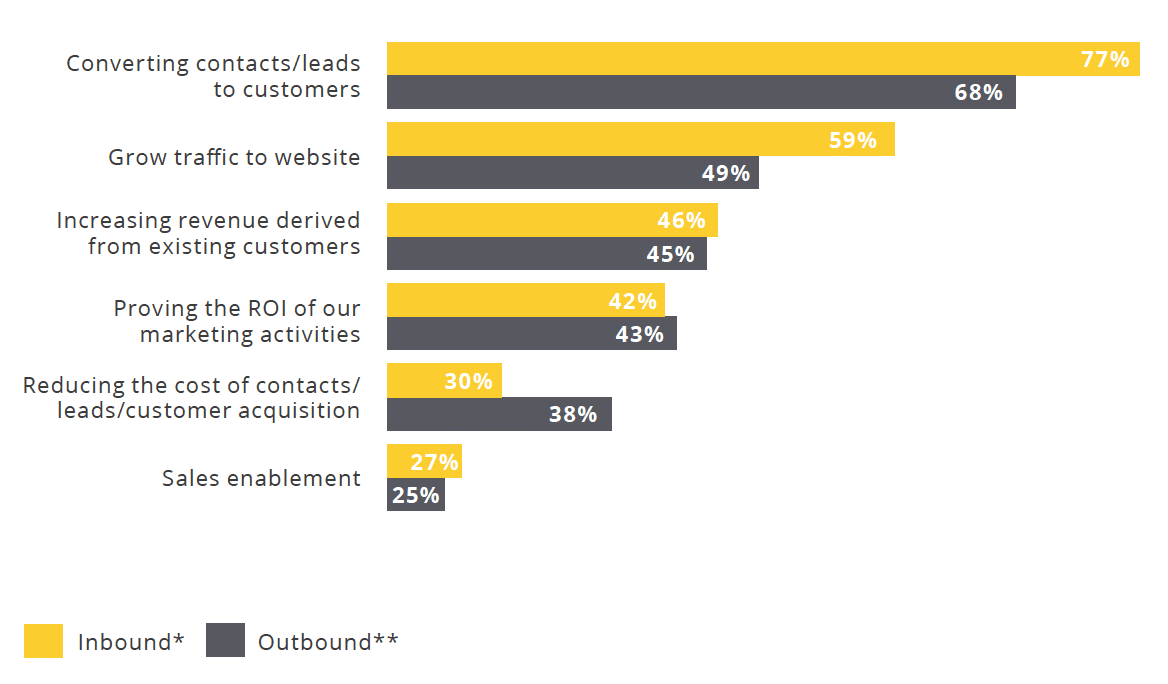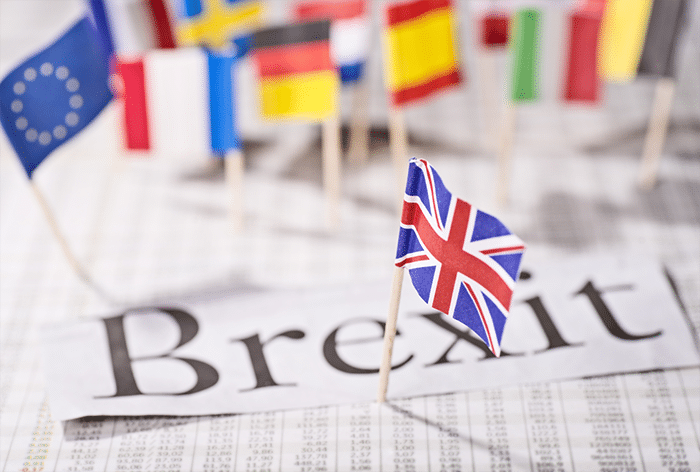History has shown that uncertainty creates inaction. Yet modern business and modern Britain demand the opposite.
“In the 1980’s it was ‘Ready, Aim, Fire’; in the 1990s it was ‘Ready, Fire, Aim’. Now it is ‘Fire, Fire, Fire.'”
Tom Peters
Brexit has caused political and economic uncertainty in the UK.
Every industry and every individual are unsure what to expect and what to do next. Clearly, it becomes difficult to plan anything, especially when it comes to allocating marketing budgets for 2017.
However, on analysis, it might not be quite so glum as we initially thought. This post looks at the current situation, challenges and future trends, and offers an in-depth overview of how to approach and tackle Brexit. The outlined conclusions and tactics are the results of extensive research and data analysis that addresses how to get ready for 2017 and what marketing solutions will be trending and are most likely going to work. History has shown that uncertainty creates inaction. Modern business and modern Britain demand the opposite.
This post and the follow on (FREE) whitepaper exist to support the important decisions, decisions that you and your organisations must make, in these uncertain and transitional times. Therefore, I hope Tom Peters observation above and the whitepaper serve you well.
The Key Enemy and Challenge
Despite the existing economic uncertainty, marketing budgets were up lately. According to the IPA’s quarterly Bellwether Report, 26.2% of senior marketers increased their ad spend in the third quarter of 2016 . However, everything is going to change in Q2 of 20173. Up until then, more than half of businesses (61%) are going to play safe and keep their marketing budgets as they were before Brexit. On the other hand, 3% of marketers are confident enough and will increase their marketing budgets, whilst the overall ad spend is forecasted to increase by just 3.8%6 in 2017. This is 0.4% less than in 2016.

Other Obstacles That Keep Marketers Up At Night
However, a budget allocation is not the only challenge marketers will face in 2017. Once the budgets are in place, marketers will need to work hard to get more bang for their buck. To make things even harder, everything will be based on achieving an outstanding ROI. It seems that 2017 will not be an easy year. According to The State of Inbound 2016 study, marketers will be challenged to get the most out of their limited marketing budgets and prove their campaign performance and value in numbers. Not only that – there are other marketing priorities that will take place over the next 12 months and keep marketers up at night.

Post-Brexit Pain Points
By now everyone knows the unspoken rule of marketing – solve their pain, win their love. It is not a secret that consumers favour brands that not only address, but solve their pains. Of course, brands can’t solve all of the consumer problems. The solutions have to be relevant to the product and service a brand has got to offer. However, marketers need solid insight before carrying out any work. As David Ogilvy, ‘The Father of Advertising’ once said:
“Advertising people who ignore research are as dangerous as generals who ignore decodes of enemy signals.”
This is where market research comes in. Depending on your business you may have a different approach to data analysis, however the fundamentals and outcomes should be the same. To put you on the right track, we have collated the findings of an in-depth analysis of various data that highlights the pains of a post-Brexit consumer and business.
Approaching a Post-Brexit Audience
There are multiple ways in which marketers could approach and solve the addressed B2C and B2B pains. However, it’s easy to go in the wrong direction and damage your brand reputation once and for all. As Warren Buffett – American business magnate, investor and philanthropist – puts it:
“It takes 20 years to build a reputation and five minutes to ruin it. If you think about that, you’ll do things differently.”
Considering the uncertainty caused by Brexit, marketers need to take a thought through and well-balanced approach to their marketing strategies, outcomes and solutions. Below are the most relevant and appropriate ways to tackle post-Brexit and ensure that your marketing messages resonate with your audiences.

According to research, 40% of British consumers want brands to keep them informed about how they are helping Britain trade globally and 33% about how they are helping to keep Britain connected with Europe.

Consumers are now concerned about their own and their country’s future. Therefore, people are the most receptive to brands that try to make a change to the current economy and situation. Audiences will favour those brands that aim to improve everybody’s lives by supporting local businesses, establishments and institutions.

As people are afraid of what the future may bring, they now embrace routine. Consumers are more likely to choose tried and tested ways rather than new products and services. Therefore, when communicating their value, brands need to be innovative but in a way that would reflect continuity, familiarity and simplicity.

Consumers are unsettled, and they lack a clear direction. Therefore, the last thing they need is marketers jumping all over the place. People will favour those brands that will reflect solidity and rationale through their marketing messages. Brands need to make their audiences feel psychologically secure more than ever before.

Research shows that during financial crises, flashy, image heavy and emotional marketing messages don’t resonate with audiences as 59% of consumers had a negative reaction to such content. Instead, the majority of consumers prefers informational ads. Marketers need to create transparent, informative and reassuring messages.

Being relevant has never been so important as it is now. Brands really need to understand what their audiences are interested in and what topics they are talking about. To stay relevant, brands need to implement listening tools and improve their content marketing strategies accordingly.

Consumers are now looking for comfort and reassurance that everything is going to be as it was before Brexit – or better. Brands can’t show weakness or be overprotective in the eyes of their customers. Marketers need to focus on creating campaigns that will empower consumers to make conscientious purchasing decisions.
Getting Ready for 2017
In order to discover The Truth About Marketing Budgets When getting ready for 2017, it is important to know which marketing approach and tactics are going to work best when conveying messages that resonate with the post-Brexit audience. They are the ones that will dictate your further marketing plan and budget allocation.
{{cta(‘909622ff-6f64-4bc3-a79b-349886a67889’)}}
Sources of Information:
- Brexit set to be a rollercoaster for marketing budgets and jobs. Marketing Week, 2016
- Why Brexit is both an opportunity and a strategic risk for marketers. Marketing Week, 2016
- UK adspend to weather Brexit storm. Warc, 2016
- No advertising recession on the horizon despite Brexit vote. Marketing Week, 2016
- The State of Inbound 2016, p.30
- For marketers, Brexit is already here. Campaign Live, 2016
- Marketers must focus on ‘great work that brings business results’ following interest rates cut. Marketing Week, 2016
- Brexit versus global thinking: the new internationalism in marketing. Campaign Live, 2016
